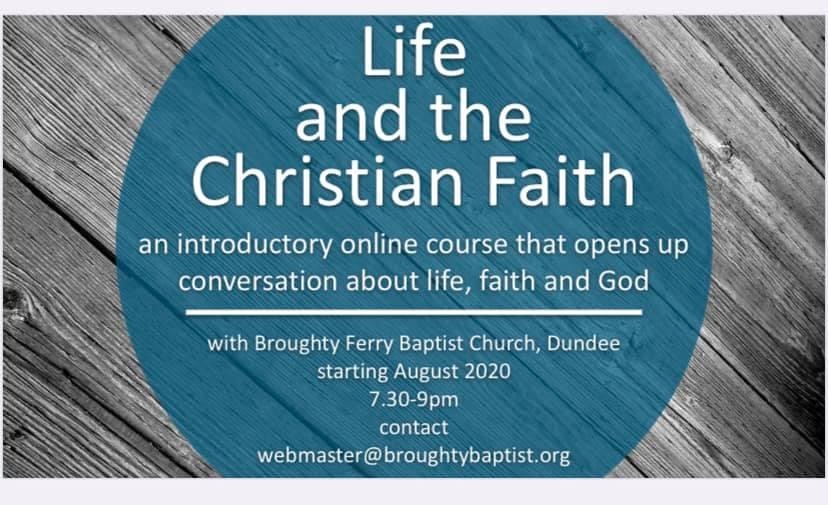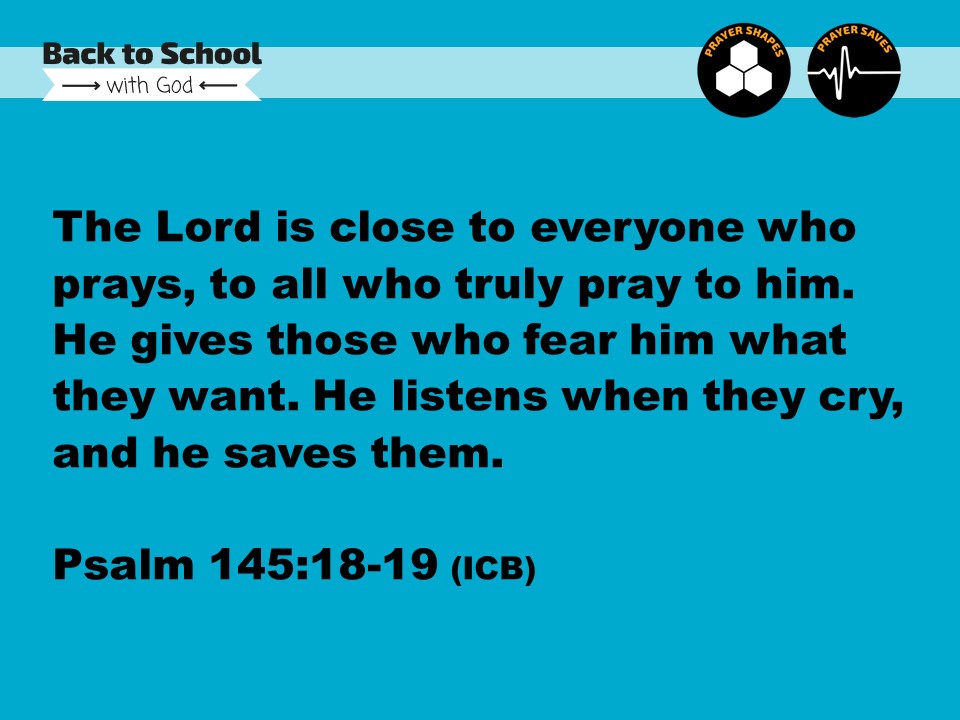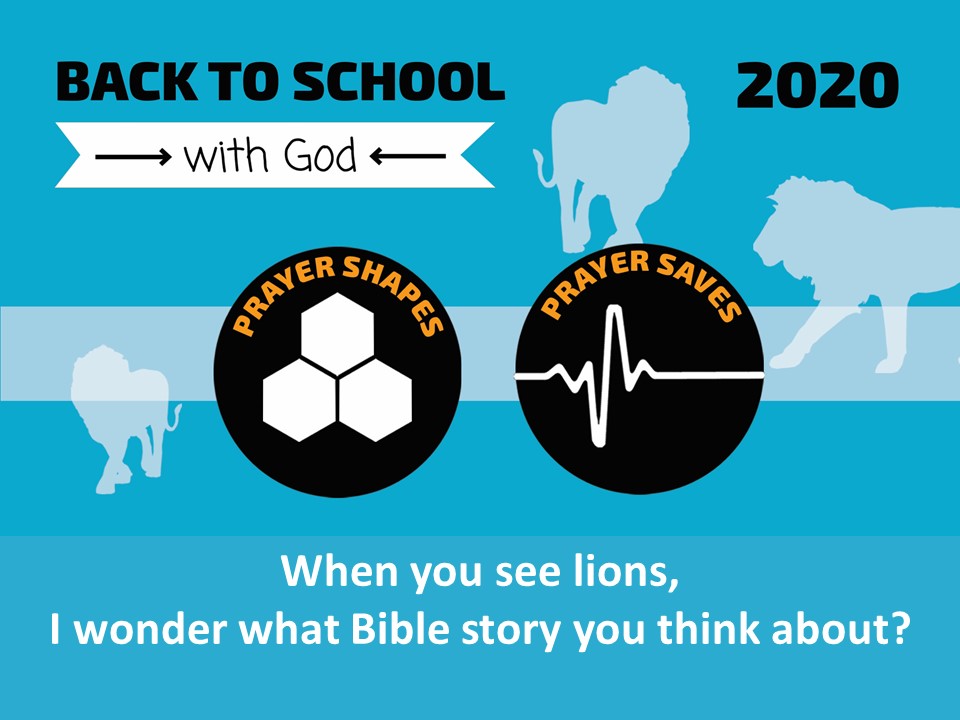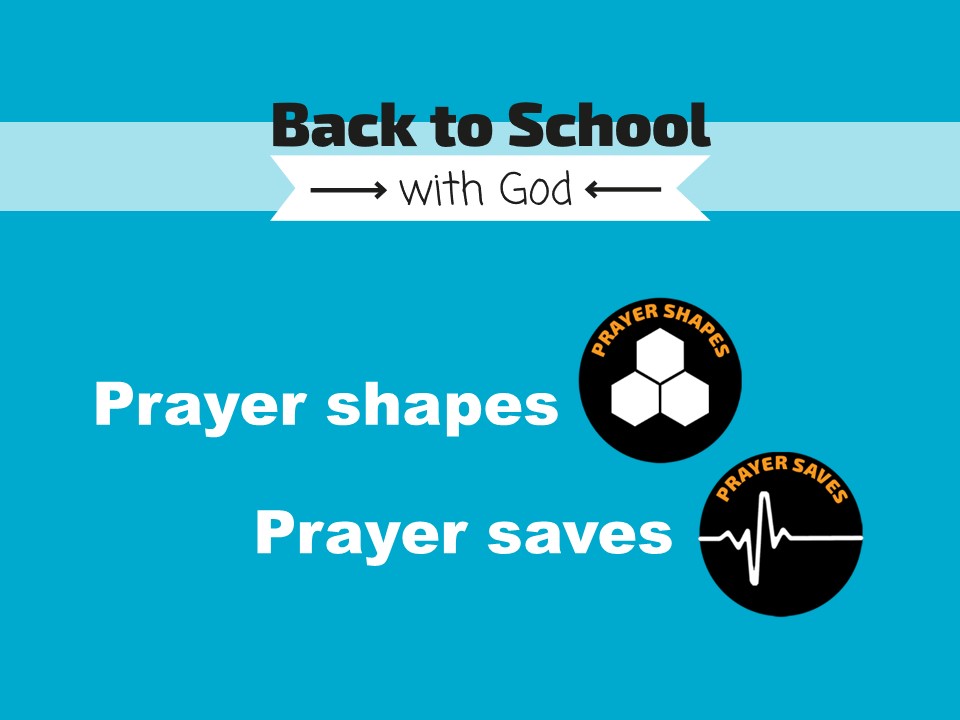Intimations
– You may want to use some of the Engage Worship resources for daily worship during this week
– Christianity Explored course – Would you like to know more about Jesus in a way that is easy to understand in a small group? We are offering 8 weekly evening sessions on Zoom which will help you understand the One who is at the heart of the Christian faith. Find out more here or e-mail webmaster@broughtybaptist.org
– The Messy Church At Home information is now available on our church website www.broughtybaptist.org
– The Baptist Union of Scotland will be continuing the Prayer Livestream at 7.00pm on Sunday 4th October, 2020. This will be another significant time of national prayer for our family of churches. The theme this month is transformation and it will include stories of personal and community transformation from Pitlochry BC and Sheddocksley BC in Aberdeen. Click here to access the event.
– JAM Kids’ focus: The Virtual Sunday School. Here is the video for this week’s session “Doing your best for God”.
– JAM young adults Ignite Live have a separate programme at 11:15am. Please contact Gary Torbet – garytorbet@btinternet.com for more details.
Call to worship
Sing to the Lord a new song,
for He has done marvellous things;
His right hand and His holy arm
have worked salvation for Him.
2 The Lord has made His salvation known
and revealed His righteousness to the nations.
3 He has remembered His love
and His faithfulness to Israel;
all the ends of the earth have seen
the salvation of our God.4 Shout for joy to the Lord, all the earth,
burst into jubilant song with music;
5 make music to the Lord with the harp,
with the harp and the sound of singing,
6 with trumpets and the blast of the ram’s horn –
shout for joy before the Lord, the King.7 Let the sea resound, and everything in it,
Psalm 98
the world, and all who live in it.
8 Let the rivers clap their hands,
let the mountains sing together for joy;
9 let them sing before the Lord,
for He comes to judge the earth.
He will judge the world in righteousness
and the peoples with equity.
We are grateful to Kevin Clark for selecting the songs for worship for this service.
Our opening song of praise and worship is:
Opening prayer:
Thank you Lord once more for the privilege of entering Your holy presence today. We have no right to come in our own merits, but because of the once-for-all-time sacrifice of Your Son our Saviour Jesus on the cross we can come with confidence before You today.
As the apostle Paul reminds us in Romans 5:1-2: Therefore, since we have been justified through faith, we have peace with God through our Lord Jesus Christ, 2 through whom we have gained access by faith into this grace in which we now stand. And werejoice in the hope of the glory of God.
We come as we are before You today asking afresh for the forgiveness of our sins and the fresh empowering we need from the Holy Spirit for the week that lies before us. We remember that
Hebrews 4:16 encourages us with these words: Let us then approach God’s throne of grace with confidence, so that we may receive mercy and find grace to help us in our time of need.
From whatever circumstances we have come today, Lord speak into our lives by Your Holy Spirit, in Jesus’ name, we pray, Amen.
Let us say together the words Jesus taught His disciples when He said:
‘Our Father in heaven,
hallowed be Your name.
Your kingdom come,
Your will be done, on earth as it is in heaven.
Give us this day our daily bread,
and forgive us our debts, as we also have forgiven our debtors.
And lead us not into temptation, but deliver us from evil.'”
For Yours is the kingdom, the power and the glory, for ever Amen.
All Age Talk – Moraig Piggot
Guess what? I have a package, and I want you to help me open it. First we have to decide which package I should open. Let’s see… what do you think? I have this one (Hold up bag or package with fancy wrapping) or I have this (hold up plain box or bag that does not look appealing).
Okay, which do you think looks more fun to open? Let’s see what’s inside. Why don’t we open this pretty one first…(Look into the box, revealing an empty inside). Oh. That’s a little disappointing, isn’t it? Why don’t we take a peek at the other bag. It doesn’t look as fun on the outside, but let’s see what’s in here… (Look in the bag and find a paper heart inside.)
This looks a lot more exciting than the other one, doesn’t it? So even though the outside was not as fun, inside this had some great!

The Bible reminds us a lot that what matters most to God is not what we say or do on the outside, but what’s on the inside, and the intentions of our hearts. We might act really cool, but we want to make sure we are living for the Lord. Jesus told a story about two men who were praying. One of them went into the church and gave a loud boastful prayer. He thanked God for making him better than other people, and talked about the wonderful things he did.
The other man Jesus described didn’t even want to go to church to pray. Instead, he stayed home and bowed low, full of sorrow and shame for the things he had done. He begged for mercy and felt unworthy of God’s attention. Jesus said that the man who was humble was offering a more genuine prayer than the boastful man. Humble means you don’t think too highly of yourself.
We know God always hears us and listens, of course. But if your prayers are meant to make yourself look better, they aren’t really focused on God. God doesn’t want us to boast about anything, even our prayer lives. It’s okay to be happy about something you’ve done, but you don’t want to go boasting about it to everyone.
When we pray, we want to make sure our hearts are devoted to God. What’s on the inside needs to have a positive purpose. We want to remember that God has given us all we have, including the most important thing, Jesus! That is a beautiful blessing to celebrate.
So let’s try to remember who the boss is. When we pray, we want our words to go to God, who is always present and loves us. Our heart intent and inner attitudes are much more important than what is on the outside. Why don’t we pray and ask God to help us focus on Him first, shall we?
Prayer: Dear God, Thank you for listening to our prayers. Help us to focus on you as the most important thing. May we not boast or brag. But turn our hearts to you. Thank you for your love We love you, God! Thank you for Jesus In His name we pray, Amen!
We continue in worship as we sing:
Prayers for others
Dear Lord,
As the nights continue to draw in, may we remember that you Lord are the Light of Life, We pray that Your presence shines in the darkness and that we need not be afraid – for You are a beacon of hope and a comforting night-light to our souls.
We pray today for those who find themselves displaced, despairing and desperate. We pray for refugees and asylum seekers across the world, whether in migrant camps or temporary accommodation. We pray too for the agencies working to help and support people in these challenging situations.
As the grip of the Covid pandemic continues, we pray for those experiencing mental health problems at this time and deep anxiety and uncertainty about the future. We pray for the right support and a listening ear to be made available to those in this situation. We pray too that the existing measures being taken in our country may be sufficient to restrict the spread of the covid-19 virus without the need for more restrictive measures being introduced.
In our Baptist Union of Scotland we also remember to pray for:
We pray for the ongoing planning for Canopy, the online Baptist Union Assembly this year. We ask that the technology being utilised will work as planned and that through the shared events that it will bring our churches closer together as we join together for these three days of meetings and a joint worship service on Sunday 25th October.
Nairn BC – We give thanks for growth in prayer and discipleship as many completed the 24/7 Prayer Course and there are some regular new attenders to our zoom services. Please pray for the follow up to our current Alpha course online and for courage in our witness in our every-day lives. Please pray for wisdom and perseverance as we keep going in our current weekly virtual gatherings but keep alert to opportunities for face to face meetings.
New Prestwick BC – Give thanks for the fellowship at New Prestwick BC as they seek to serve and witness to the people of Prestwick and Newton-on-Ayr
Newton Mearns BC – We praise God for people coming to faith in this community during this time, and that social distancing is no barrier to the Spirit of God! We praise God too for a good first in-person youth service they held just recently. We pray for the online discipling of these new Christians, for the church to find healthy patterns of in-person and online meetings and for the prayer course and wellbeing groups they plan to run this term.
We now pray for other people with particular needs that are connected to our own congregation:
We thank you for the good news that Nilapu and Susmita have had their first child, a baby boy last Thursday. We pray that both mother and baby may be in good health. We also thank God for Sheila B’s improvement in health this week.
We pray for your comfort for Margaret R and her family in the recent loss of her younger brother. We continue to remember Ann W as she supports her sister Margaret at this very difficult time and John and Ann S’s niece Rachel likewise going through extremely hard times.
We continue to remember those going through tests at hospital and others still waiting a long time for operations to take place. We pray for wisdom and strength for all concerned.
We continue to remember those members of our congregation in residential care or confined to their own homes. Help them Lord to sense Your presence with them and to know that they are not forgotten as we pray for them.
In addition, we bring our own needs to You at this time …, in the name of Jesus Christ, our Lord and Saviour, Amen.
Bible reading
To some who were confident of their own righteousness and looked down on everyone else, Jesus told this parable: 10 ‘Two men went up to the temple to pray, one a Pharisee and the other a tax collector. 11 The Pharisee stood by himself and prayed: “God, I thank you that I am not like other people – robbers, evildoers, adulterers – or even like this tax collector. 12 I fast twice a week and give a tenth of all I get.”
13 ‘But the tax collector stood at a distance. He would not even look up to heaven, but beat his breast and said, “God, have mercy on me, a sinner.”
14 ‘I tell you that this man, rather than the other, went home justified before God. For all those who exalt themselves will be humbled, and those who humble themselves will be exalted.’
Luke 18: 9-14
Before we come to listen to God’s Word let us sing:
The Message
Matthew 5:8 My inner motivation
Introduction
Do our personal values and standards really matter or make a difference? The first American Presidential election debate, ahead of the November 2020 election, is taking place on a day when I am working on this message. Does it matter what claims are raised or what promises are made?
As a Christian my answer has to be firmly ‘yes’! Our words and our promises have to be seen as important or they lose their value. How could our families, workplaces and countries operate without attention to this important subject? Yet it appears that integrity in our communications is not as valued today as it ought to be. The deliberate misuse of statistics in campaigning by some politicians or special interest groups or the misrepresentation of products for sale by companies is alarmingly common despite all the laws that supposedly prohibit such behavior. We can all give plenty of examples of this problem today.
It does go further, though, because there are times when it is questioned whether someone having high standards of personal integrity would fit into the team in particular workplaces or sports. A classic example previously debated in the Scottish media concerned Christian rugby players like Euan Murray. Although he is now retired from the game, the principle behind the question is very important. Can a Christian be as effective as someone without their particular convictions, given all the skullduggery that allegedly goes on inside the scrums! In Murray’s case it was clearly a backhanded compliment because he was arguably Scotland’s best tight-head prop in the professional era and was also picked as a British Lion some years ago as well. If that was not success in his chosen profession, then an explanation is called for! Although it is hard to put into words, we all know what is being suggested here.
The world in which we live is a murky place where many people would argue that a little bit of lying and cheating or low-level malpractice may at times be necessary to get on. From the footballer seeking to gain an Oscar for his diving skills or feigning serious injury, to the accountant assisting his client on the margins of tax avoidance law to the office junior asked to tell the business contact that ‘the cheque is in the post’; in this kind of world a Christian with their high standards could be, some might argue, a bit of a liability or someone difficult to accommodate within the system!
Thankfully there are other people who may not yet share our faith but who also recognize the need for the values we are proclaiming in this context of integrity of motivation and in our communications with other people. We are not alone but it can take courage to stand up for what is right. Yet there are times when as Christians that we struggle to know how we ought to think, act and speak in some difficult situations. Jesus said: Blessed are the pure in heart, for they will see God (Matthew 5:8) First of all:
1. What is meant by the reference to our heart?
This is not a scientific or biological use of the word with which we are so familiar. In the Bible human beings are understood as spiritual beings made in the image of God. They have a body and a soul; the latter is a collective term that covers everything else in terms of our personality, our rational faculties, emotions and decision-making capability.
The apostle Paul in I Thessalonians 5:23 wrote: May God Himself, the God of peace, sanctify you through and through. May your whole spirit, soul and body be kept blameless at the coming of our Lord Jesus Christ.
In many passages of the Bible instead of referring to the soul the word ‘heart’ is often substituted as an alternative to using the word ‘soul’. This kind of thinking and usage is found in our culture and language as well. The whole notion of Valentine’s Day, and the industry of cards and gifts associated with it, is based on the usage of the heart as a symbol of our love and affection for that special person or people in our lives whom we love, and for whom we might purchase a card or some other gift for that day!
Of course there are some scientists who would reduce the whole notion of love to chemical stimuli, reactions and changes in our bodies, but the vast majority of us, including the majority of scientists know that such a reduction in the meaning of love and its impact on us to chemical formulae is far from adequate. So how does the Bible use the word heart?
(a)The heart is understood as the place of our emotions King David in Psalm 27:1-3 declared: The Lord is my light and my salvation –whom shall I fear? The Lord is the stronghold of my life – of whom shall I be afraid? 2 When the wicked advance against me to devour me, it is my enemies and my foes who will stumble and fall. 3 Though an army besiege me, my heart will not fear; though war break out against me, even then I will be confident.
In his case he had in mind his time on the run from King Saul before becoming king of Israel or the many military conflict situations he experienced over the years. He would not be overcome by fear in such a context. In words familiar to all of us from funeral services, we remember Jesus’ words to His disciples in the Upper Room prior to His crucifixion stating in John 14:1-3:
Do not let your hearts be troubled. You believe in God; believe also in Me. 2 My Father’s house has many rooms; if that were not so, would I have told you that I am going there to prepare a place for you? 3 And if I go and prepare a place for you, I will come back and take you to be with me that you also may be where I am.
Why, because there is a natural fear and uncertainty in the face of death for many people. Jesus wants to give His followers a clear assurance that He has already taken care of our future beyond the grave. In Mark 12:30 Jesus said: Love the Lord your God with all your heart and with all your soul and with all your mind and with all your strength.
There is a foundational emotional input to a relationship that we invest in – this includes not only with members of our family and friends, and the range of other people we associate with, but also in our relationship with God.
(b)The heart is understood as the place of our understanding In John 12:40 Jesus, in a quotation from Isaiah 6:10, spoke about the people who had consciously rejected His message in this manner: they can neither see with their eyes, nor understand with their hearts…; their worldview was such that they had factored out the possibility that Jesus was who He claimed to be; is that not a place some people are in today?
Their secular or other religious views are incompatible with the direct claims of Jesus, so instead of questioning whether their current views need to be reconsidered they upfront rule out the truth claims of Jesus. This was certainly true of many Jewish people of Jesus’ day and in subsequent generations. Paul in II Corinthians 3:14-16 made this statement in reflection on his mission work in his own Jewish communities around the Roman world.
But their minds were made dull, for to this day the same veil remains when the old covenant is read. It has not been removed, because only in Christ is it taken away. 15 Even to this day when Moses is read, a veil covers their hearts. 16 But whenever anyone turns to the Lord, the veil is taken away.
Are our minds open to being shaped by the call and claims of Jesus?
(c) The heart is understood as the place of our thoughts and desires Later in this same sermon, in Matthew 5:28, Jesus stated: I tell you that anyone who looks at a woman lustfully has already committed adultery with her in his heart.
The traditional Jewish view was that only the sinful act was wrong, but Jesus sough to challenge that view by declaring that our attitudes and speech must also be controlled appropriately in line with God’s standards.
How is that possible? Through the Word of God; Hebrews 4:12 reminds us that : the word of God is alive and active. Sharper than any double-edged sword, it penetrates even to dividing soul and spirit, joints and marrow; it judges the thoughts and attitudes of the heart.
By reading and reflecting on what we read in the Bible it informs and influences our attitudes to do what is right.
(d) The heart is associated with our conscience On the day of Pentecost Peter preached a powerful sermon that the Holy Spirit used to convict many people of their sins and their need to accept Jesus as their Lord and Saviour. Acts 2:36-37 states:
‘Therefore let all Israel be assured of this: God has made this Jesus, whom you crucified, both Lord and Messiah.’ 37 When the people heard this, they were cut to the heart and said to Peter and the other apostles, ‘Brothers, what shall we do?’38 Peter replied, ‘Repent and be baptised, every one of you, in the name of Jesus Christ for the forgiveness of your sins. And you will receive the gift of the Holy Spirit. 39 The promise is for you and your children and for all who are far off – for all whom the Lord our God will call.’
The heart represents the place of moral conviction and judgement where our convictions are formed in response to our recognition that things need to be changed in a particular way.
(e) The heart is associated with our decision making Daniel 1:8 But Daniel resolved not to defile himself with the royal food and wine; literally, as the NKJV states: But Daniel purposed in his heart that he would not defile himself with the portion of the king’s delicacies…
Here a brave teenage boy in a foreign land makes choices that his parents would have been proud of, he thought through the options before him and stood up to be counted for his Jewish faith. In II Corinthians 9:6-8 Paul wrote on the subject of financial giving to the Lord’s work:
Remember this: whoever sows sparingly will also reap sparingly, and whoever sows generously will also reap generously. 7 Each of you should give what you have decided in your heart to give, not reluctantly or under compulsion, for God loves a cheerful giver. 8 And God is able to bless you abundantly, so that in all things at all times, having all that you need, you will abound in every good work.
(f) The heart is described as the place where faith choices are made Romans 10:9-10 states: If you declare with your mouth, ‘Jesus is Lord,’ and believe in your heart that God raised him from the dead, you will be saved. 10 For it is with your heart that you believe and are justified, and it is with your mouth that you profess your faith and are saved.
It is not merely ascent in our heads, but our whole being is involved in the commitment to follow Jesus. By contrast Hebrews 3:12 warns us with these words:
See to it, brothers and sisters, that none of you has a sinful, unbelieving heart that turns away from the living God.
We must be wholehearted in our commitment to the Lord and in our service for Him. King David echoed these sentiments in Psalm 57:7: My heart, O God, is steadfast, my heart is steadfast; I will sing and make music.
2. What is a ‘pure’ heart?
(a)The meaning of the word ‘pure’ Blessed are the pure in heart… (Matthew 5:8) The Greek word katharoi Jesus used in this passage, historically in Classical Greek was a term used primarily of physical cleansing. Clothes that were dirty were washed clean instead of being soiled or stained by usage. It was also used in the sense of being ‘unmixed’ that is the substance was pure rather than a mixture or an alloy, for example some gold or silver that was being offered for sale by a trader.
The purity of the gold or silver on offer rightly has a significant impact on the price of the product so a potential purchaser needs to know whether it is ‘pure’ gold or silver! It was used of pure water with no added substances; milk that was not watered down; also of grain that was winnowed to remove all the chaff; of animals that were free from known blemishes; it was also used of a bloodline that was consistently a line of people of the same ethnic heritage with no interbreeding with people of another racial heritage.
It was also used of an army that had been purged of ill-disciplined or inadequate soldiers who could not carry out the orders entrusted to them. It was used in a religious sense to speak of the person who had met the religious requirements of their faith and was free to participate in the worship services of their god. It was also used in obituaries to pay tribute to someone who was deemed to have lived an exemplary life and who had been a good example to the people around them (W. Barclay, The Plain Man looks at the Beatitudes, pp.72-73).
In the New Testament there are a number of examples of different uses of this term. In Matthew 27:59-60 the author writes: Joseph took the body, wrapped it in a clean linen cloth, 60 and placed it in his own new tomb that he had cut out of the rock.
Matthew is describing what happened to the body of Jesus after his crucifixion. Another use of this word comes in the book of Revelation where John from the vision he received is attempting to describe the new Jerusalem and expressed it this way in Revelation 21:18: The wall was made of jasper, and the city of pure gold, as pure as glass.
Paul uses this term in a semi-legal way in his sermon before the elders of the church at Ephesus in Acts 20:26-27: 26 Therefore, I declare to you today that I am innocent of the blood of any of you. 27 For I have not hesitated to proclaim to you the whole will of God.
He had shared God’s word with them without qualification and imbalance and had sought to present it to the best of his ability in his public proclamations. It was used by Jesus with reference to the Jewish religious practices. He made it very clear that He was abolishing the ceremonial regulations then practiced in the Holy Land. In saying this, Jesus declared all foods clean (Mark 7:19).
The best known usage of the New Testament, though is probably with reference to our cleansing from sin when we come to faith and as we seek fresh cleansing from our sin. In I John1:7-9 it states:
But if we walk in the light, as He is in the light, we have fellowship with one another, and the blood of Jesus, His Son, purifies us from all sin. 8 If we claim to be without sin, we deceive ourselves and the truth is not in us. 9 If we confess our sins, He is faithful and just and will forgive us our sins and purify us from all unrighteousness.
It was stated as a general principle of the work of the Spirit in believers at the Council of Jerusalem in AD48. In Acts 15:8-9 Peter explained that God worked in the lives of Gentiles who came to faith in exactly the same way as believers of a Jewish background. God, who knows the heart, showed that He accepted them by giving the Holy Spirit to them, just as He did to us. 9 He did not discriminate between us and them, for He purified their hearts by faith.
(b) Purity of heart involves sincerity One of the biggest complaints Jesus had about the Pharisees was hypocrisy. He denounced them sometimes in the very strongest terms, as can be seen in Matthew 23. For example, in Matthew 23:25-26 Jesus declared:
‘Woe to you, teachers of the law and Pharisees, you hypocrites! You clean the outside of the cup and dish, but inside they are full of greed and self-indulgence. 26 Blind Pharisee! First clean the inside of the cup and dish, and then the outside also will be clean.
There was also a very familiar story He told, recorded in Luke 18:9-14 about the contrast between a Pharisee and a Tax Collector who went to pray in the Temple in Jerusalem.
To some who were confident of their own righteousness and looked down on everyone else, Jesus told this parable: 10 ‘Two men went up to the temple to pray, one a Pharisee and the other a tax collector. 11 The Pharisee stood by himself and prayed: “God, I thank you that I am not like other people – robbers, evildoers, adulterers – or even like this tax collector. 12 I fast twice a week and give a tenth of all I get.”13 ‘But the tax collector stood at a distance. He would not even look up to heaven, but beat his breast and said, “God, have mercy on me, a sinner.” 14 ‘I tell you that this man, rather than the other, went home justified before God. For all those who exalt themselves will be humbled, and those who humble themselves will be exalted.’
This was equally prized in the Old Testament also. In Jeremiah 32:39-40, the prophet declared how God would work to transform His people in exile. I will give them singleness of heart and action, so that they will always fear Me and that all will then go well for them and for their children after them. 40 I will make an everlasting covenant with them: I will never stop doing good to them, and I will inspire them to fear me, so that they will never turn away from Me. Do you and I have singleness of heart serving the Lord with sincerity?
(c) Purity of heart requires integrity King David of Israel had many faults and weaknesses alongside his undoubted strengths. In Psalm 78:70-72 Asaph the Temple worship leader wrote: He chose David His servantand took him from the sheepfolds; 71 from tending the sheep He brought him to be the shepherd of His people Jacob, of Israel His inheritance. 72 And David shepherded them with integrity of heart; with skilful hands he led them.
People can be forgiven for genuine mistakes; for inadequacy of gifting that results in lesser accomplishments than they had aspired to. However, a person whose conduct is lacking in integrity and who is found out is in an extremely problematic position. In Jeremiah 17:9-10 there is a very frank assessment of the state of the human heart: The heart is deceitful above all things and beyond cure. Who can understand it? 10 ‘I the Lord search the heartand examine the mind, to reward each person according to their conduct, according to what their deeds deserve.’
This matter was frequently raised in the Psalms. In Psalm 51:6 (NKJV) David admitted: Behold, You desire truth in the inward parts, And in the hidden part You will make me to know wisdom.
In verse 10 of the same Psalm David prayed: Create in me a pure heart, O God, and renew a steadfast spirit within me. Will you and I maintain our integrity of words and actions even if others around us adhere to lesser standards?
(d) Purity of heart includes fervency A person who is pure in heart doesn’t settle for just being as good as the next person. Their frequency of attendance at church; their level of commitment to Christian service and the attention to detail in rendering it or the level of their financial giving to His work is not determined by what other people do. This person is passionately committed to honouring the Lord in each area of their lives. The details of what that looks like may vary from Christian to Christian, in some respects, but it would be evident from the self-discipline and determination of that individual to please the Lord that their motivation and enthusiasm for bringing glory to the Lord Jesus was not in doubt.
Hebrews 12:14 reminds us of this fact. Make every effort to live in peace with everyone and to be holy; without holiness no one will see the Lord. Our focus on the basic Christian disciplines of time in prayer and in God’s word and joining together with fellow-Christians for worship, witness and service will bear fruit in time. Paul summarized it this way to Timothy, a young pastor who he had mentored in the faith. Flee the evil desires of youth and pursue righteousness, faith, love and peace, along with those who call on the Lord out of a pure heart. (II Timothy 2:22). Are you and I pursuing these things in our lives personally and collectively?
3. How do we ‘see’ God? …For they will see God. (Matthew 5:8)
(a)It is not with physical sight This is not a physical rare sighting of Almighty God, like the bird watchers who descend on remote spots of the country when an unlikely bird visits this country! In John 1:18 we read: No one has ever seen God, but the one and only Son, who is Himself God and is in the closest relationship with the Father, has made Him known. Paul, likewise in I Timothy 6:16 stated concerning God the Father: …whom no-one has seen or can see…. Seeing God is sensing His presence with us in a variety of contexts. It may be when we pray or in worship services.
Jeremiah 29:12-14a Then you will call on Me and come and pray to Me, and I will listen to you. 13 You will seek Me and find Me when you seek Me with all your heart. 14 I will be found by you,’ declares the Lord.
Why is it that unbelievers have no comprehension of the presence of God in the world let alone in their lives?
Paul stated in II Corinthians 4:4: The god of this age has blinded the minds of unbelievers, so that they cannot see the light of the gospel that displays the glory of Christ, who is the image of God. Philip, one of Jesus’ disciples asked this question at the Last Supper: Philip said, ‘Lord, show us the Father and that will be enough for us.’ 9 Jesus answered: ‘Don’t you know Me, Philip, even after I have been among you such a long time? Anyone who has seen Me has seen the Father. How can you say, “Show us the Father”? 10 Don’t you believe that I am in the Father, and that the Father is in Me? (John 14:8-10) It is a spiritual awareness of His presence by a person sensitive to living a God-honouring life.
(b) It produces an awareness of our shortcomings In the book of Job the patriarch was complaining that he did not understand why God was at work in the world in the way He was. When he had an overwhelming experience of God it was a transformational one that brought about a humbling of himself and a turning to God in repentance and a deepened faith. Job 42:5-6 states: My ears had heard of You, but now my eyes have seen You. 6 Therefore I despise myself and repent in dust and ashes.’ To sense something of the greatness and glory of God will inevitably result in a deepened awareness of our own hearts and place in the universe, a place that too many people today have forgotten in their arrogance and pride.
(c) It produces an awareness of God’s holiness and our call to mission In Isaiah 6:1-8, the familiar passage describing the call of Isaiah the prophet to his life’s work, there is a profound realisation of this revelation.
In the year that King Uzziah died, I saw the Lord, high and exalted, seated on a throne; and the train of His robe filled the temple. 2 Above Him were seraphim, each with six wings: with two wings they covered their faces, with two they covered their feet, and with two they were flying. 3 And they were calling to one another: ‘Holy, holy, holy is the Lord Almighty; the whole earth is full of His glory.’ 4 At the sound of their voices the doorposts and thresholds shook and the temple was filled with smoke 5 ‘Woe to me!’ I cried. ‘I am ruined! For I am a man of unclean lips, and I live among a people of unclean lips, and my eyes have seen the King, the Lord Almighty.’ 6 Then one of the seraphim flew to me with a live coal in his hand, which he had taken with tongs from the altar. 7 With it he touched my mouth and said, ‘See, this has touched your lips; your guilt is taken away and your sin atoned for.’ 8 Then I heard the voice of the Lord saying, ‘Whom shall I send? And who will go for Us?’ And I said, ‘Here am I. Send me!’
Our desire to see God glorified in the conversion of people yet to come to faith is intensified when we ‘see Him’.
(d) It will be a foretaste of our experience of heaven There is so much about heaven we will not know until we get there, but seeing God through sensing His presence now is a little glimpse of what we will experience in its fullness then. In Revelation 22:4 John writes concerning believers in heaven that they will see His face. What a motivation we have for living a God-honouring life here on earth when this is the future planned for us. May we never forget Jesus’ words here: Blessed are the pure in heart for they will see God, Amen.
Our song before we come to communion is: ‘Purify my heart’
The Lord’s Supper
Jesus invites all Christian who have committed their lives to follow Him to participate in this act of worship. The apostle Paul wrote these words of Scripture in I Corinthians 11:23-26 to guide our observance of Communion.
For I received from the Lord what I also passed on to you: the Lord Jesus, on the night He was betrayed, took bread, 24 and when He had given thanks, He broke it and said, ‘This is My body, which is for you; do this in remembrance of Me.’ 25 In the same way, after supper He took the cup, saying, ‘This cup is the new covenant in My blood; do this, whenever you drink it, in remembrance of Me.’ 26 For whenever you eat this bread and drink this cup, you proclaim the Lord’s death until He comes.
Prayer: Choose your own words of prayer to give thanks for the bread and wine that represent the costly gift of His body and blood for us.
Take the bread: Jesus said: ‘This is My body, which is for you; do this in remembrance of Me.
Take the wine: Jesus said: This cup is the new covenant in My blood; do this, whenever you drink it, in remembrance of Me.’
Our closing song is: ‘Restore O Lord’
Closing Prayer:
Thank you Lord for the privilege of being Your child. Thank You for the investment You have made in our lives through Your Son our Saviour Jesus Christ. Help us this week through all we say and do to live in a way that is honouring to You, and is also an encouragement to others as we continue to experience these challenging times. May we know the enabling power of the Holy Spirit equipping us for all we need to do in these coming days, in Jesus’ name we pray, Amen.
Benediction: The Grace
May the Grace of our Lord Jesus Christ,
the love of God
and the Fellowship of the Holy Spirit,
be with us all evermore, Amen










